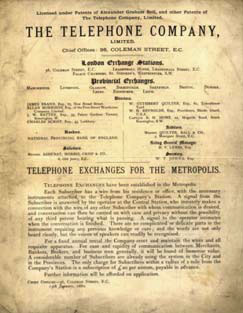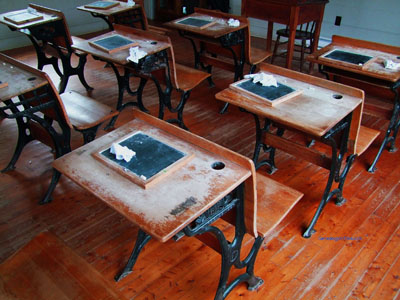Local Resources
14. Local Grade Schools – If your ancestor comes from a small town or village, you may want to consider writing to the local grade school. Creating family trees is a popular educational lesson for young school children today in many countries. You might find a teacher who is willing to take up the challenge of helping you find a local ancestor. As well, don't forget the children in the local grade school are the living descendants of the people from the region. It is quite possible that one of the parents of the children would know something about the person or family you are researching.
15. Schoolhouse Records – Schoolhouse records are a resource often overlooked by genealogists. Schools always kept detailed class rolls. Schools also took class pictures, which is an excellent way to find photographs of your ancestors when they were children. Schoolhouse records can also be used to confirm dates for an ancestor.
Children often went to school for several years. It is only necessary to find your ancestor listed in just one school year to be able to make a reasonable estimate of their year of birth. Therefore, always try to determine where your ancestor may have gone to school and then see if the schoolhouse records are still available. Typically, old schoolhouse records are located at the local archives.
16. Poorhouses – Poorhouses go by various names in various countries and over different periods of time. However, they always share one common trait of providing welfare and living assistance to those in need. Since this assistance comes at a financial cost, local authorities always recorded and documented who received the aid. Thus, the poorest people in society often had the best records kept on them. Check with local poorhouse societies to see if any of your ancestors are in the records.
17. Electoral Rolls – Electoral rolls are often kept at the municipal or city level to allow local authorities to know who is registered to vote. As well, electoral rolls are often updated on a set schedule, usually at a much higher frequency than census records (which are typically every ten years). Looking through electoral rolls is a good way to narrow down the date range to find out when somebody died or moved out of a region.
Electoral rolls are arguably the most powerful yet overlooked resource available to genealogists. Even countries that do not have census records kept electoral rolls. We have written an entire article on getting the most out of electoral rolls. See Searching Electoral Rolls for Ancestors.
18. Neighbourhood Church/Synagogue – Most local religious organizations kept annual rosters of their active members. Often, these rosters list the full name of each individual, (sometimes) the date of birth, and place of origin. Besides providing such information, these records also provide an excellent date range for determining when someone moved or died.
19. Vanished Church/Synagogue - During times when government records were sparse or nonexistent, records from religious organizations often provide the best proxy for ancestral information. Churches and synagogues are an excellent place to find records of births, marriages and burials. Do not be discouraged if the church/synagogue of your ancestor has been torn down or disbanded over the years. This does not mean the records have disappeared. Often the records were passed to successor institutions in the region or the records were moved to regional offices. Always check out this possibility.
20. Old Phone Books – In the absence of census information, old phone books can be an invaluable resource. Phone books were usually published once a year. Tracking down old phone books, however, can sometimes be a challenge. Usually the best place to look is the national library of the country. They often maintained the most complete collection. Sometimes major city libraries also maintain old phone book collections of the city and surrounding region.
One thing to remember about very old telephone books (pre 1950s) is that your ancestor might not be listed. It was very expensive to own a telephone back then and typically only merchants, wealthy farmers and very rich people could afford such a luxury.

21. City Directories – City directories sorted by street address can also be a valuable source of information. City or street directories (the predecessor of the modern telephone book) often listed useful information such as the occupation of the resident. As well, remember recent immigrants to a city often wanted to live near relatives who had already established a presence in the city. A reading of who lived within two blocks of your ancestor can often produce several previously unknown aunts, uncles and cousins.


